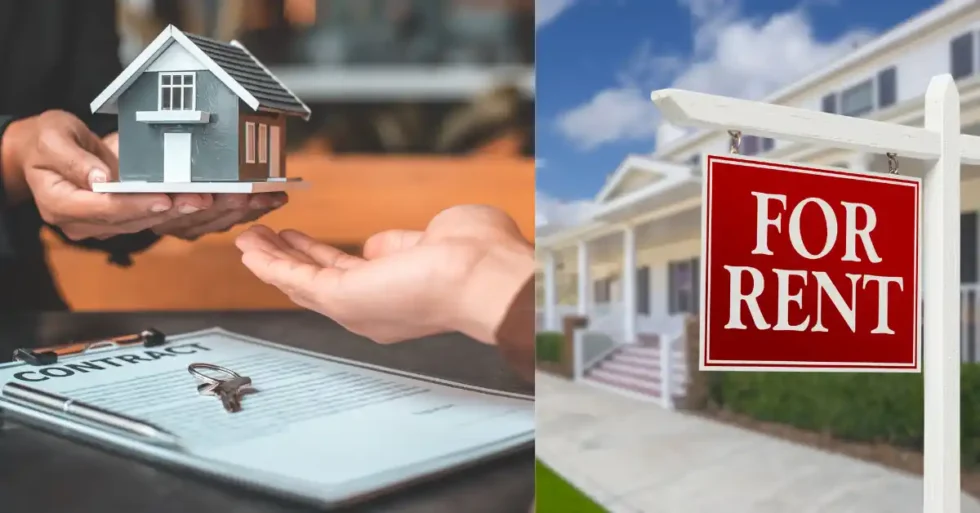
Deciding between buying a house or continuing to rent is one of individuals’ most significant financial decisions. Both options have their merits, depending on financial goals, lifestyle preferences, and long-term stability. In this detailed guide, we’ll explore the pros and cons of each option, considering financial aspects like home loan costs, rental expenses, and the future appreciation of real estate.
Table of Contents
Understanding the Basics: Renting vs Buying
The core dilemma between renting and buying a house is whether you want flexibility or stability. Renting provides the freedom to move as needed, whereas homeownership offers a sense of permanence and an asset for the future. But which one makes better financial sense in the long run?
Let’s dive into the financial aspects, comparing both scenarios.
Scenario 1: Renting a Property
Renting can offer numerous advantages, especially if you’re someone who values flexibility or isn’t yet ready for the long-term commitment of a home loan. In this scenario, we assume the following:
- Monthly Rent: ₹25,000
- Annual Rent in the First Year: ₹3 lakh
- Rental Yield: 3%
- Cost of Rented Property: ₹1 crore
- Assumed Annual Rental Increase: 10%
Over 15 years, with a rental increase of 10% annually, the total rent paid would amount to ₹89.8 lakh. Renting offers short-term affordability but does not build any asset or equity in the property.
Advantages of Renting:
- Flexibility: Renting offers the ability to move locations easily, whether for career reasons or lifestyle changes.
- Lower Initial Investment: Renting requires a significantly lower upfront cost than buying a house, which often requires a large down payment.
- No Long-Term Commitment: You avoid the burden of a long-term loan and are free from property maintenance costs.
Disadvantages of Renting:
- No Asset Ownership: Unlike owning a home, renting doesn’t provide long-term equity or asset value.
- Rising Costs: Rent typically increases yearly, unlike a fixed mortgage payment on a home loan.
Scenario 2: Buying a Home
Buying a house means committing to a large upfront cost and ongoing EMIs for the home loan. Here’s what we assume for this scenario:
- Cost of Purchased Property: ₹1 crore
- Loan-to-Value (LTV) Ratio: 75%
- Downpayment: ₹25 lakh
- Home Loan Amount: ₹75 lakh
- Annual Capital Appreciation: 5%
- Home Loan Interest Rate: 7%
- Stamp Duty and Registration Charges: 7% of the property value
- Home Loan Tenure: 15 years
- Total Home Loan Cost: ₹1.21 crore
- EMI: ₹67,412 per month
In addition to paying the EMI each month, you’re also benefiting from the capital appreciation of the property. After 15 years, the property could be worth considerably more due to the 5% annual appreciation rate, meaning your investment grows over time.
Advantages of Buying:
- Asset Creation: Owning a home builds equity and offers you an asset that will likely appreciate over time.
- Tax Benefits: Home loans have several tax deductions that reduce the overall cost.
- Stability: Owning a home offers long-term security and eliminates concerns about rent hikes or sudden relocations.
- Fixed EMI: Your monthly EMI remains the same, offering predictable payments over time.
Disadvantages of Buying:
- High Initial Costs: The down payment, stamp duty, and registration fees add significantly to the cost of buying a home.
- Ongoing Maintenance: Homeownership comes with maintenance costs that renters do not need to worry about.
- Long-Term Commitment: With a home loan stretching over 15-20 years, buyers are tied to a long-term financial commitment.
Sub-Scenario: Compromising on Property Type
Some might buy a smaller or more affordable property as a middle ground. Let’s take a look at a more modest property priced at ₹60 lakh:
- Property Cost: ₹60 lakh
- Stamp Duty and Registration: 7% of the property value
- LTV Ratio: 80%
- Downpayment: ₹12 lakh
- Home Loan Amount: ₹48 lakh
- EMI: ₹53,930 per month
- Total Home Loan Cost: ₹97 lakh
This sub-scenario reduces the EMI and downpayment costs but still gives you the benefits of homeownership, including capital appreciation, tax benefits, and asset creation.
Which Option is Better: Buying or Renting?
While renting may seem more affordable in the short term, buying a home can be a more profitable investment in the long run, provided you can comfortably afford the EMI payments and other associated costs. Let’s summarize the key points:
- Renting offers flexibility and a lower initial cost but does not build equity or offer long-term financial gain.
- Buying requires a substantial initial investment and ongoing costs, but over time, it leads to asset creation and potential wealth growth through capital appreciation.
Buying a house often makes sense if you want to stay in one location long-term and have enough financial stability to handle the upfront costs and monthly EMIs.
However, financial readiness, career stability, and long-term goals are crucial in making this decision. Renting may suit you better if your priority is flexibility and lower immediate expenses. But if you want to build an asset, enjoy tax benefits, and secure a stable place to live, buying a home is often the better choice.
Additional Considerations
- Capital Appreciation: One of the key advantages of buying a home is the property’s potential to appreciate over time, which renting does not offer.
- Tax Benefits: Homeowners enjoy tax benefits on home loan interest payments and principal repayment under sections 80C and 24(b) of the Income Tax Act.
- Hidden Costs: Homeownership includes additional costs like maintenance, repairs, and renovations. Renters avoid these expenses.
Ultimately, the decision between renting and buying depends on your situation, financial capacity, and plans.





